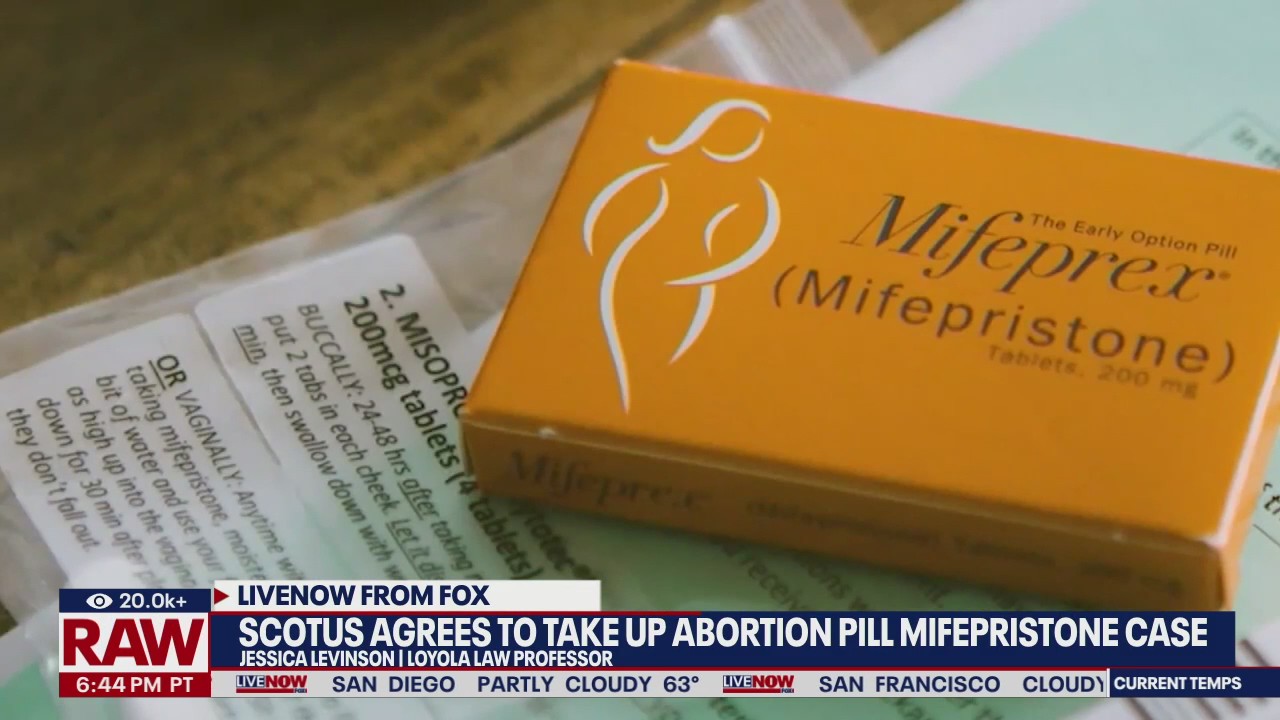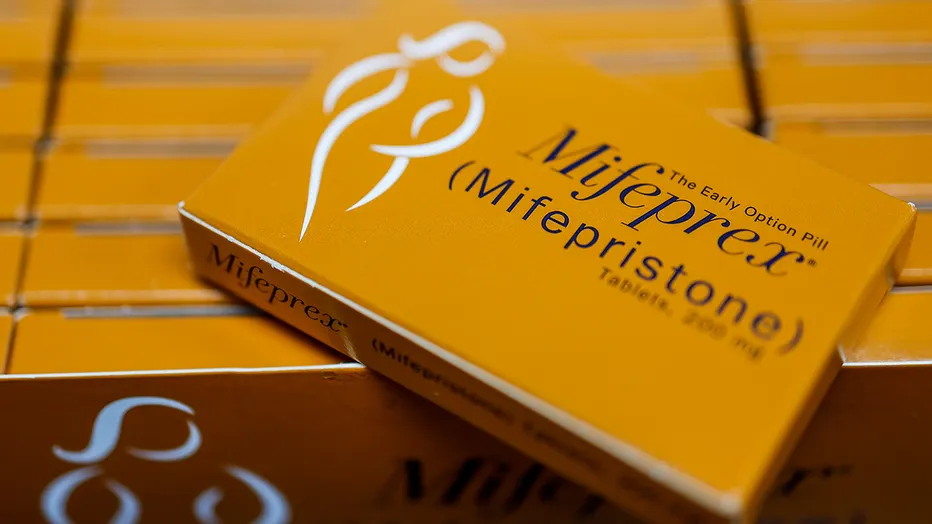US women stock up on abortion pills following news about restrictions, research shows

SCOTUS to decide on access to the abortion pill
The Supreme Court will hear a case on access to the abortion pill, Mifepristone. The nation's highest court agreed to consider appeals from the Biden administration. The case will be argued in the spring, with a decision likely by late June.
Thousands of women stocked up on abortion pills just in case they needed them, new research shows, with demand peaking in the past couple years at times when it looked like the medications might become harder to get.
Medication abortion accounts for more than half of all abortions in the U.S., and typically involves two drugs: mifepristone and misoprostol. A research letter published Tuesday in JAMA Internal Medicine looked at requests for these pills from people who weren’t pregnant and sought them through Aid Access, a European online telemedicine service that prescribes them for future and immediate use.
Aid Access received about 48,400 requests from across the U.S. for so-called "advance provision" from September 2021 through April 2023. Requests were highest right after news leaked in May 2022 that the Supreme Court would overturn Roe v. Wade — but before the formal announcement that June, researchers found.
Nationally, the average number of daily requests shot up nearly tenfold, from about 25 in the eight months before the leak to 247 after the leak. In states where an abortion ban was inevitable, the average weekly request rate rose nearly ninefold.

In this photo illustration, packages of Mifepristone tablets are displayed at a family planning clinic on April 13, 2023 in Rockville, Maryland. (Credit: Anna Moneymaker/Getty Images)
"People are looking at looming threats to reproductive health access, looming threats to their reproductive rights, and potentially thinking to themselves: How can I prepare for this? Or how can I get around this or get out ahead of this?" said Dr. Abigail Aiken, an associate professor at the University of Texas at Austin and one of the letter's authors.
Daily requests dropped to 89 nationally after the Supreme Court decision, the research shows, then rose to 172 in April 2023 when there were conflicting legal rulings about the federal approval of mifepristone. The Supreme Court is expected to rule on limits on the drug this year.
Co-author Dr. Rebecca Gomperts of Amsterdam, director of Aid Access, attributed this spike to greater public awareness during times of uncertainty.
Researchers found inequities in who is getting pills in advance. Compared with people requesting pills to manage current abortions, a greater proportion were at least 30 years old, white, had no children and lived in urban areas and regions with less poverty.

Supreme Court abortion pill ruling: What happens next?
The Supreme Court on Friday preserved women’s access to a drug used in the most common method of abortion, rejecting lower-court restrictions while a lawsuit continues. The justices granted emergency requests from the Biden administration and New York-based Danco Laboratories, maker of the drug mifepristone.
Advance provision isn’t yet reaching people who face the greatest barriers to abortion care, said Dr. Daniel Grossman, an OB-GYN at the University of California, San Francisco, who was not involved in the research.
"It’s not surprising that some people would want to have these pills on hand in case they need them, instead of having to travel to another state or try to obtain them through telehealth once pregnant," he added in an email, also saying more research is needed into the inequities.
EARLIER: Supreme Court to take up restrictions on abortion pill mifepristone
Recently, Aiken said, some other organizations have started offering pills in advance.
"It’s a very new idea for a lot of folks because it’s not standard practice within the U.S. health care setting," she said. "It will actually be news to a lot of people that it’s even something that is offered."
___
The Associated Press Health and Science Department receives support from the Howard Hughes Medical Institute’s Science and Educational Media Group. The AP is solely responsible for all content.

